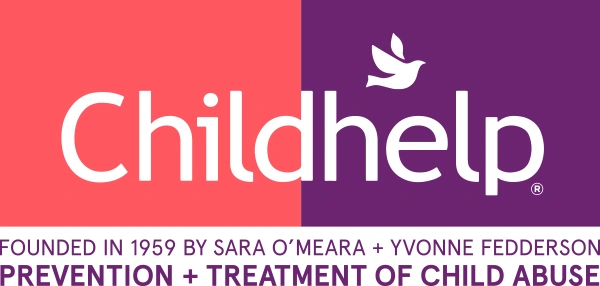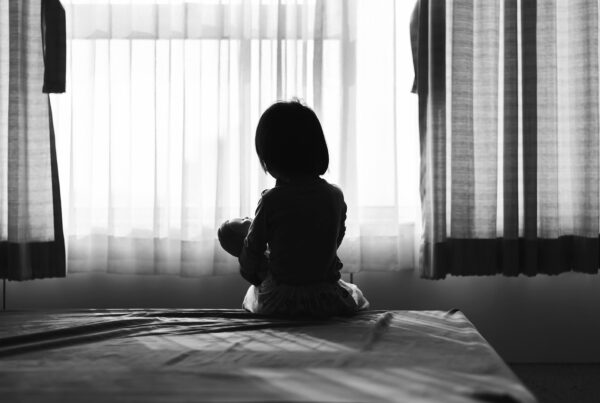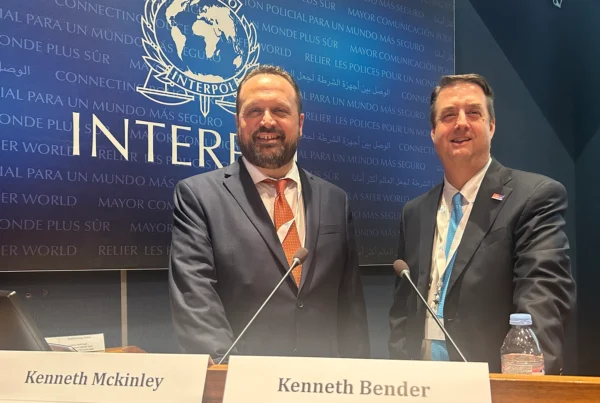
5 tips to help survivors flourish through the holidays
The holidays offer many gifts, but few are as precious as time with family and memories of Christmases gone by. While survivors of child abuse may find their relationship with holidays complicated, they also find unique opportunities to shape the season in a way that reflects a spirit of joy and honors their own experiences of the ‘most wonderful time of the year.’
In the seasonal spirit of giving, and in hope of a more peaceful new year, here are five tips for survivors and allies alike to keep things merry, bright … and real … well into the new year:
1. Keep your mind and body grounded
When it comes to reining in anxieties, frustrations, and distractions, the line between staying in tune with self and keeping in harmony with the holidays can seem elusive, but practicing a routine that aligns mind, body, and spirit can help survivors and allies balance priorities to work toward a season of peace.
Faith traditions that uplift and inspire take centerstage during Christmas (and other religious observations that make up the holidays). Spiritual practices and faith communities can nurture in the faithful a shared sense of meaning and hope. Likewise, personal meditation, prayer, and reflection are as much a part of celebrating Christmas as all the joyful noise that helps ring in the new year. Meanwhile, daily devotionals, breathing exercises like square breathing, daily self-affirmations, finding tranquility lying still, or even enjoying a regular walk, all can help a high-strung sympathetic nervous system take a back seat to executive function.
While feasting and merriment can distract even the most committed fitness devotee, and holiday excess can lead to unhealthy choices, exercise remains one of the best ways to combat stress during the holidays. And if this holiday isn’t the right time to start exercising, there’s a whole year around the corner to hone healthier habits.
2. Affirm boundaries
Personal boundaries set limits that serve a lot of functions — especially for survivors. Boundaries set the stage as everyone navigates interactions with others by protecting an individual’s socio-emotional and physical space.
Few boundaries are as important to understand as the one between things in our power and things outside our power. While a survivor might not be able to control who gets invited to someone else’s Christmas dinner, the gifts other people give, or what gets said by family, it is possible to control other parts of the experience.
Feeling comfortable with limits and being willing to express them respectfully strengthens a shared understanding of expectations and affirms personal feelings of worth. At the same time, healthy boundaries empower people to be honest about their limits, their needs, and how they can help others. They also help everyone stay safe and healthy.
Asserting boundaries during the holidays can mean challenging traditions or upsetting the status quo. A survivor might need a more involved exit plan should a gathering become uncomfortable or hostile, but sometimes the best exit plan is a solid “no thank you” beforehand.
3. Feel your feelings
Holidays and sentiment go hand in hand.
Classic Christmastime movies and songs, church services, cherished recipes, beloved decorations, family, and old friends all stoke memories that revisit holidays past. At the same time, the excitement of festivities and the onslaught of obligations keep yuletide calendars full, pushing the bustle of the holidays into a frenzy, regardless of intentions to the contrary.
There are a lot of ways to feel about the holidays. It’s okay for feelings to shift through the season and for each new year to offer new lessons in emotional resilience. It’s okay to feel Christmas cheer even during a difficult time. It’s okay to give in to holiday nostalgia for a childhood that was far from perfect. It’s alright to feel frazzled when every candle you have is burning at both ends … and even when you are already taking it easy. When family and tradition play such important parts, those who struggle with family issues can feel vulnerable about the images, messages, and assumptions around their feelings this time of year. All the Christmas magic in the world can’t turn difficult emotions into feelings that are easier to deal with; However, a better understanding of emotions and the contexts around them can help shift personal perspectives to a more honest, healthy viewpoint.
4. Let go and renew on your own terms
Holiday traditions might be set in stone or they might drift into one household and out of another from year to year: decorating, gift-giving, cultural events, religious services, cooking and baking. Each element that makes the holidays special rests on a legacy that builds with each new year.
It’s normal for survivors to feel a sense of grief as they come to terms with childhood experiences, and as they look for a way forward as adults. Ambiguous loss describes the experience of losing someone or something without closure or certainty. Childhood trauma can reshape the landscape of family well after the initial trauma occurs, and the impact of abuse can compound over the years, even as survivors celebrate one of the world’s most beloved children’s holidays. Parts of that struggle may never go away, but by practicing healthy coping skills and following up on treatment, survivors stand to find a much brighter outlook.
Unfortunately, a survivor in recovery can be pulled off-track by family legacies and celebratory habits of hometown friends. Embracing new traditions doesn’t have to mean sacrificing everything from the past though, and giving oneself permission to avoid family events and settings that trigger unhealthy habits doesn’t have to mean a holiday season cooped up at home.
5. Heal with help, help others heal
The new year is a new chance to heal, strengthen healthy habits, and renew connections with supportive family and friends. Social supports aren’t only an established protective factor to keep kids safe. By nurturing healthy social connections, survivors keep help close and make room to celebrate those they want to be a part of more hopeful holidays in the future. For every survivor who feels safe, loved, and in-tune with the best the holidays have to offer, there are countless others who are struggling, and there are moments when even the most hopeful recovery succumbs to the emotional minefield between Thanksgiving and Epiphany. It isn’t always easy to stay strong, much less be a source of strength for others, but a light that shines through the darkness is what Christmas is all about.
Counselors at the Childhelp National Child Abuse Hotline understand how abuse during childhood can impact a lifetime of Christmases, and they are available to help online at childhelphotline.org, and to visit with over text or phone at 1-800-4-A-CHILD.



